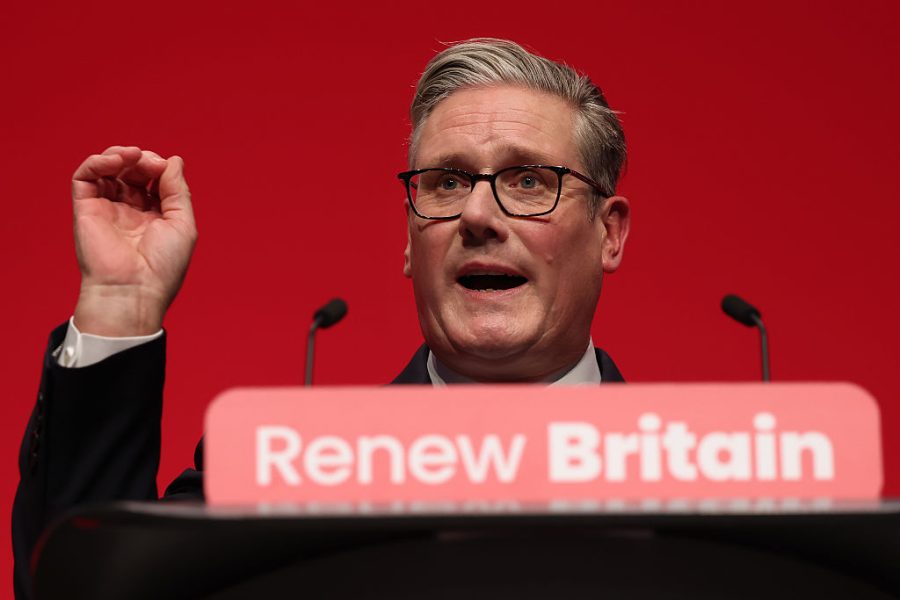Last week, Keir Starner swallowed Tony Blair’s argument for ID cards and announced that all we going to be forced to have them if we want a job, just as the former prime minister has been advocating for years. This week, however, the current PM has poured scorn on one of his predecessor’s cherished policies, and ditched Blair’s target for getting 50 per cent of young adults into higher education. Instead, Starmer yet again invoked his tool-making dad to argue that the target was wrong. It is to be replaced, he said, with a target of getting 75 per cent of young people into either university or on to a high quality apprenticeship.
Given that Blair’s target has already been reached – in 2022, 58 per cent of people had gone into higher education by the age of 25 – it is hard to see what the point is of dropping it now. Is Starmer saying: Blair’s target was pointless in the first place and we’re not the least bit proud of what we could be boasting of as a great Labour achievement?
The effects of Blair’s arbitrary target are there for everyone to see
There will be many people who will sympathise with that point of view. The effects of Blair’s arbitrary target are there for everyone to see: large numbers of graduates serving behind the counter in McDonald’s, or other jobs that don’t require a degree, while homeowners desperately search for skilled tradespeople to repair their kitchen sink. If we were going to have a target for getting people into higher education, it ought at least to have been based around getting people onto the right courses which were going to boost their chances of employment. Instead, we have had school-leavers being sucked onto fashionable humanities courses which qualify them for nothing in particular, except perhaps political activism.
There certainly doesn’t seem to be any positive correlation between the percentage of young people a country sends to university and its economic success: in the fast-growing US it is 43 per cent and in basket-case Greece it is 69 per cent. Nevertheless, the politics of Starmer’s about-turn are fascinating.
One group who won’t have been pleased with Starmer’s speech are academics and university administrators. For the PM to say that it is wrong to have a target of getting 50 per cent of people into university when, in fact, 58 per cent are already taking this route implies that he wants the university sector to shrink. Universities are already pleading financial hardship; while the government has this year granted them a modest, inflation-linked rise in the fees they are allowed to charge UK students, it was the first increase in eight years and some institutions have been warning about the sustainability of their finances. Unions have been bleating that 10,000 jobs are at risk as universities are forced to draw in their horns.
There is possibly no bigger and stronger client group for the Labour party than academics. So why should Starmer choose to scorn them? If he wanted to boost the number of toolmakers’ apprenticeships, he could always have set a target for them without changing, dropping or even mentioning the higher education target. Were I writing his speech, I would have had him boasting about having reached Blair’s target, blasting the naysayers who said it couldn’t be done, and then have him say something like: ‘And now we want to boost apprenticeships so nearly all young people will be going into either higher education or apprenticeships. They are equally valid routes, and the choice is yours.’
Instead, he questioned the whole worth of university education for the masses. While some may well agree, it is hard to see that it was good politics if you are the leader of the Labour party.








Comments